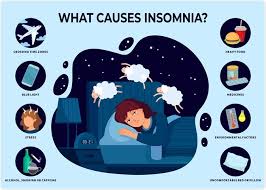The Impact of Drug and Alcohol Abuse on Individuals and Society
Drug and alcohol abuse continue to be significant issues that affect individuals, families, and societies worldwide. The misuse of these substances can have devastating consequences on physical health, mental well-being, relationships, and overall quality of life.
Effects on Individuals
Individuals who abuse drugs and alcohol often experience a range of negative effects. These substances can impair judgment, coordination, and cognitive function, leading to accidents, injuries, and even fatalities. Long-term substance abuse can also result in addiction, dependency, and a decline in overall health.
Impact on Mental Health
Drug and alcohol abuse are closely linked to mental health issues such as depression, anxiety, and psychosis. Substance abuse can exacerbate existing mental health conditions or trigger the onset of new ones. Individuals may turn to drugs and alcohol as a way to cope with emotional pain or trauma, but this often leads to a vicious cycle of dependency and worsening mental health.
Social Consequences
The social consequences of drug and alcohol abuse are far-reaching. Relationships with family members, friends, and colleagues can suffer as individuals prioritize substance use over meaningful connections. Substance abuse can also lead to legal issues, financial problems, homelessness, and social isolation.
Community Impact
Communities bear the burden of drug and alcohol abuse through increased crime rates, strain on healthcare systems, lost productivity in the workforce, and higher rates of domestic violence. The societal costs associated with substance abuse are substantial and affect everyone in the community.
Prevention and Treatment
Preventing drug and alcohol abuse requires a multi-faceted approach that includes education, early intervention programs, accessible treatment options, support services for individuals in recovery, and policies that regulate the availability of these substances. Treatment for substance abuse often involves a combination of therapy, counseling, medication-assisted treatment (MAT), support groups like Alcoholics Anonymous (AA) or Narcotics Anonymous (NA), and holistic approaches that address the underlying causes of addiction.
In conclusion,
drug
and
alcohol
abuse
have
significant
impacts
on
individuals,
families,
and
society.
By
raising awareness,
providing support,
and implementing effective prevention strategies,
we can work towards reducing the prevalence
of substance abuse
and improving the well-being
of our communities.
Exploring the Short-Term Benefits of Drug and Alcohol Use: A Look at Social, Emotional, and Creative Influences
- Improved social skills and confidence in social situations
- Temporary relief from stress, anxiety, or emotional pain
- Enhanced creativity or altered perception for artistic expression
- Increased feelings of euphoria and pleasure in the short term
- Escape from reality or difficult life circumstances temporarily
- Potential for bonding with others who also use drugs or alcohol
- Exploration of altered states of consciousness for spiritual purposes
- Perceived boost in energy, alertness, or relaxation depending on substance used
- Curiosity and experimentation leading to new experiences
7 Dangers of Drug and Alcohol Abuse: Health, Legal, and Personal Consequences
- Increased risk of accidents and injuries
- Negative impact on physical health, leading to long-term medical issues
- Impaired judgment and decision-making abilities
- Risk of addiction and dependency on substances
- Strained relationships with family, friends, and colleagues
- Legal consequences such as arrests, fines, or imprisonment
- Financial problems due to spending money on drugs or alcohol
Improved social skills and confidence in social situations
Drug and alcohol abuse can sometimes be perceived as a way to improve social skills and boost confidence in social situations. Some individuals may turn to these substances as a means to alleviate social anxiety or feel more at ease in social settings. However, it’s essential to recognize that the temporary confidence or perceived enhancement of social skills gained from drug and alcohol use is often artificial and unsustainable. In reality, substance abuse can lead to long-term negative consequences on mental health, relationships, and overall well-being, outweighing any short-lived benefits in social interactions. It is crucial to seek healthier and more sustainable ways to build genuine confidence and develop authentic social skills without relying on substances.
Temporary relief from stress, anxiety, or emotional pain
One perceived benefit of drug and alcohol abuse is the temporary relief it may provide from stress, anxiety, or emotional pain. Individuals struggling with overwhelming emotions or difficult life circumstances may turn to substances as a way to escape or numb their feelings temporarily. While this coping mechanism may offer a brief respite from emotional distress, it is important to recognize that relying on drugs and alcohol for relief can lead to long-term negative consequences on physical health, mental well-being, relationships, and overall quality of life. Seeking healthier and sustainable ways to manage stress and address emotional pain through therapy, support networks, and healthy coping strategies is essential for long-term well-being.
Enhanced creativity or altered perception for artistic expression
The pro of drug and alcohol abuse often cited in artistic circles is the potential for enhanced creativity or altered perception that can inspire unique forms of artistic expression. Some individuals believe that substances like drugs and alcohol can unlock new perspectives, fuel imagination, and break down inhibitions, leading to unconventional and innovative artistic creations. However, it is essential to recognize the risks and dangers associated with relying on substances for creativity, as the temporary benefits may come at a high cost to physical health, mental well-being, and overall artistic integrity.
Increased feelings of euphoria and pleasure in the short term
One perceived benefit of drug and alcohol abuse is the temporary increase in feelings of euphoria and pleasure that individuals may experience in the short term. These substances can alter brain chemistry, leading to a sense of heightened happiness, relaxation, and euphoria. However, it’s important to recognize that this short-lived euphoric state is often followed by negative consequences such as addiction, physical and mental health issues, impaired judgment, and strained relationships. The pursuit of fleeting pleasure through substance abuse can ultimately lead to long-term harm and should be approached with caution and awareness of the risks involved.
Escape from reality or difficult life circumstances temporarily
Drug and alcohol abuse can provide individuals with a temporary escape from reality or difficult life circumstances. In times of stress, trauma, or overwhelming emotions, some individuals may turn to substances as a way to numb their feelings and find relief. The altered state of consciousness induced by drugs and alcohol can offer a brief respite from the challenges of everyday life, allowing individuals to momentarily forget their troubles and experience a sense of euphoria or relaxation. However, it is important to recognize that this form of escapism is not sustainable and can lead to negative consequences for both the individual and those around them in the long run.
Potential for bonding with others who also use drugs or alcohol
The potential for bonding with others who also use drugs or alcohol is a common pro associated with substance abuse. Shared experiences of using substances can create a sense of camaraderie and belonging among individuals, leading to the formation of social connections and friendships based on a mutual understanding of substance use. However, it’s important to recognize that while this bonding may initially provide a sense of community, it can ultimately perpetuate and reinforce harmful behaviors associated with drug and alcohol abuse, potentially leading to further negative consequences for individuals and their social circles.
Exploration of altered states of consciousness for spiritual purposes
The exploration of altered states of consciousness for spiritual purposes is a pro often associated with drug and alcohol abuse. Some individuals believe that certain substances can facilitate a deeper connection to the spiritual realm, enhance introspection, and provide insights into the nature of existence. Through altered states, people may seek profound experiences that offer a sense of transcendence and enlightenment. However, it is essential to approach such exploration with caution and awareness of the potential risks and consequences associated with substance use.
Perceived boost in energy, alertness, or relaxation depending on substance used
One perceived pro of drug and alcohol abuse is the temporary boost in energy, alertness, or relaxation that individuals may experience depending on the substance used. For some people, substances like stimulants or alcohol can create a sense of heightened energy and alertness, making them feel more focused or sociable in social settings. Similarly, certain substances may induce feelings of relaxation or euphoria, providing a temporary escape from stress or emotional discomfort. However, it’s important to recognize that these perceived benefits are often short-lived and come with significant risks to physical health, mental well-being, and overall quality of life.
Curiosity and experimentation leading to new experiences
Curiosity and experimentation can indeed lead to new experiences, but when it comes to drug and alcohol abuse, this pro is overshadowed by the significant risks and dangers involved. While some individuals may initially be driven by curiosity to experiment with substances, the potential consequences such as addiction, health issues, impaired judgment, and negative impacts on relationships far outweigh any fleeting sense of novelty or adventure. It is essential to approach new experiences in a safe and responsible manner that does not involve putting one’s well-being and future at risk through substance abuse.
Increased risk of accidents and injuries
Drug and alcohol abuse significantly increases the risk of accidents and injuries. When individuals are under the influence of these substances, their coordination, reaction time, and judgment are impaired, making them more prone to accidents while driving, operating machinery, or engaging in other activities. This not only puts the individual at risk but also endangers the safety of others around them. Accidents resulting from drug and alcohol abuse can have devastating consequences, leading to serious injuries or even fatalities that could have been prevented if substance use was avoided. It is crucial to recognize this con of substance abuse and take steps to prevent such tragic incidents from occurring.
Negative impact on physical health, leading to long-term medical issues
Drug and alcohol abuse can have a detrimental effect on physical health, often resulting in long-term medical issues. Prolonged substance abuse can damage vital organs such as the liver, heart, and brain, leading to conditions like cirrhosis, cardiovascular disease, and cognitive impairment. Additionally, substance abuse weakens the immune system, making individuals more susceptible to infections and illnesses. The negative impact on physical health caused by drug and alcohol abuse can significantly reduce quality of life and increase healthcare costs for individuals and society as a whole.
Impaired judgment and decision-making abilities
One significant con of drug and alcohol abuse is the impairment of judgment and decision-making abilities. When individuals are under the influence of these substances, their cognitive functions are compromised, leading to poor decision-making skills and impaired judgment. This can result in risky behaviors, dangerous situations, and consequences that individuals may not have chosen if they were sober. Impaired judgment can have far-reaching effects on personal relationships, work performance, and overall well-being, highlighting the detrimental impact of drug and alcohol abuse on an individual’s ability to make sound decisions.
Risk of addiction and dependency on substances
One of the significant drawbacks of drug and alcohol abuse is the heightened risk of addiction and dependency on these substances. Continuous use of drugs and alcohol can lead to changes in the brain’s chemistry, making individuals more susceptible to developing a physical and psychological reliance on these substances. Addiction can have profound effects on a person’s life, leading to destructive behaviors, strained relationships, health complications, and an overall diminished quality of life. Breaking free from addiction often requires intensive treatment, support, and a strong commitment to recovery.
Strained relationships with family, friends, and colleagues
Drug and alcohol abuse often leads to strained relationships with family, friends, and colleagues. Individuals who struggle with substance abuse may prioritize their addiction over meaningful connections, causing them to withdraw from social interactions and neglect important relationships. The effects of substance abuse, such as mood swings, unpredictable behavior, and unreliability, can erode trust and communication within these relationships. As a result, loved ones may experience feelings of frustration, disappointment, and helplessness as they witness the destructive impact of drug and alcohol abuse on their loved one’s well-being and the dynamics of their relationships.
Legal consequences such as arrests, fines, or imprisonment
Drug and alcohol abuse can have severe legal consequences, including arrests, fines, and imprisonment. When individuals engage in illegal activities related to substance abuse, such as driving under the influence or possession of illicit drugs, they risk facing criminal charges that can have long-lasting effects on their lives. Legal repercussions not only disrupt personal freedom but also tarnish reputations, limit employment opportunities, and strain relationships with family and friends. The threat of legal consequences serves as a stark reminder of the serious ramifications of drug and alcohol abuse beyond just physical and mental health issues.
Financial problems due to spending money on drugs or alcohol
Financial problems are a significant con of drug and alcohol abuse, as individuals often find themselves spending a substantial amount of money to support their addiction. The costs associated with purchasing drugs or alcohol can quickly add up, leading to financial instability, debt, and the inability to meet basic needs. This financial strain not only affects the individual’s own well-being but also impacts their family members and loved ones who may bear the burden of supporting them financially. Additionally, the cycle of spending money on substances can prevent individuals from investing in their future, saving for emergencies, or achieving long-term financial goals.



